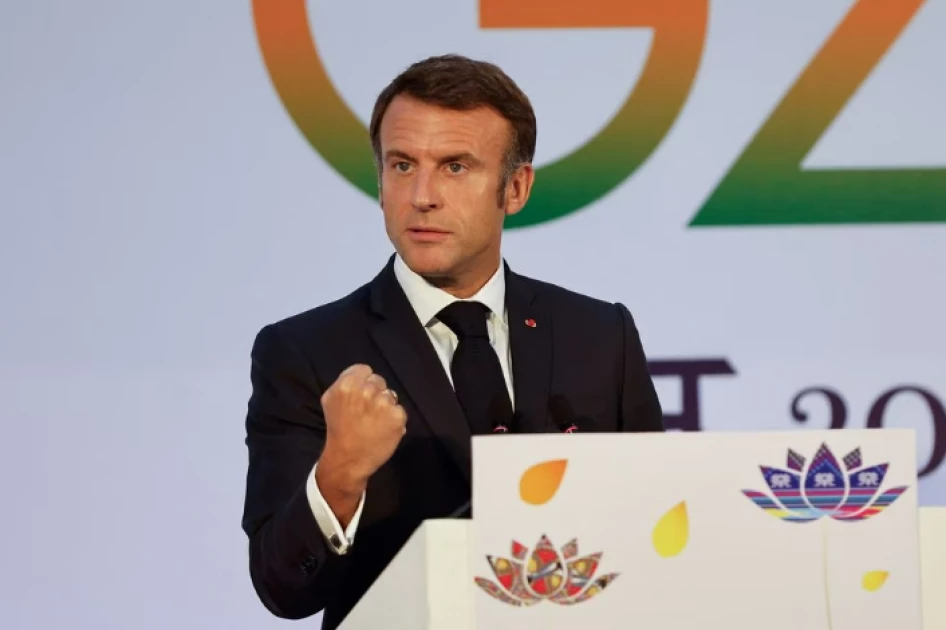French President Emmanuel Macron will appoint a new prime minister within the next 48 hours, the Elysee Palace has announced, seeking to end days of political uncertainty following the resignation of Sébastien Lecornu.
The declaration appears to dismiss mounting speculation that France could be headed for another snap election.
Outgoing Prime Minister Lecornu, who has spent the past two days in discussions with different political parties, said the likelihood of dissolving parliament is receding.
“There is a majority in parliament and that is the majority that is keen to avoid fresh elections,” he said.
Lecornu, one of Macron’s most trusted allies, became the third prime minister to step down in under a year amid deep divisions in a hung parliament that has struggled to function since last year’s elections. Macron asked him to remain temporarily in office to hold consultations and try to forge consensus on a way out of the political impasse.
Speaking in a televised interview on Wednesday night, Lecornu declined to hint at who might replace him, saying only that his “mission was finished.” However, he did not completely rule himself out from returning to the position. He said most lawmakers were against new elections and agreed on the urgent need to pass the national budget before the year ends.
He acknowledged, though, that forming a new government remained complicated due to ideological rifts within parliament and growing political ambitions ahead of the 2027 presidential race. “Whoever ends up in government will need to be completely disconnected from any presidential ambition for 2027,” he said.
The stalemate has persisted since the snap elections of July 2024, which left no single party with a working majority.
This gridlock has made it difficult to pass key legislation, including austerity measures and the national budget, at a time when France’s public debt has soared to €3.4 trillion, about 114 percent of its GDPone of the highest in the eurozone after Greece and Italy.
Lecornu’s predecessors, Michel Barnier and Francois Bayrou, were both forced out through confidence votes after tabling unpopular budget proposals aimed at cutting public spending
. Lecornu said his own version of the budget would be unveiled next week but emphasized that it must be subject to open debate. “But the debate needs to begin… parties cannot say they’ll vote it down without examining it,” he said.
He also pointed out that one of France’s most divisive issues—Macron’s contested pension reforms—must be revisited. “We have to find a way for the debate to take place,” Lecornu noted.
Despite these appeals, several factions in parliament remain firm in their opposition. Mathilde Panot of the radical left France Unbowed party insisted the only real solution was “the resignation and departure of Emmanuel Macron.”
Meanwhile, Marine Le Pen, leader of the far-right National Rally, reaffirmed her stance that she would vote against any new government, again calling for early elections.
It is still uncertain which political groups would back the next administration. The centrist-Republican alliance that has sustained Macron’s government since last year appears to have fractured, and it remains unclear whether the Socialists—previously aligned with the left bloc—could be persuaded to offer support.
Responding to calls for Macron’s resignation, including suggestions from former prime minister Edouard Philippe earlier this week, Lecornu stressed the importance of continuity.
“This is not the time to change the president,” he said, arguing that France needs a stable and internationally respected leader.
However, Macron’s isolation has been deepening, with several close allies beginning to distance themselves. Gabriel Attal, once seen as Macron’s protégé, remarked this week that he “no longer understood” the president and urged the appointment of an independent figure to guide political negotiations.
Macron has not made any public statements since Lecornu’s sudden resignation on Monday. Lecornu assured the public that the president would “address the French people in due course,” though no timeline was given.
